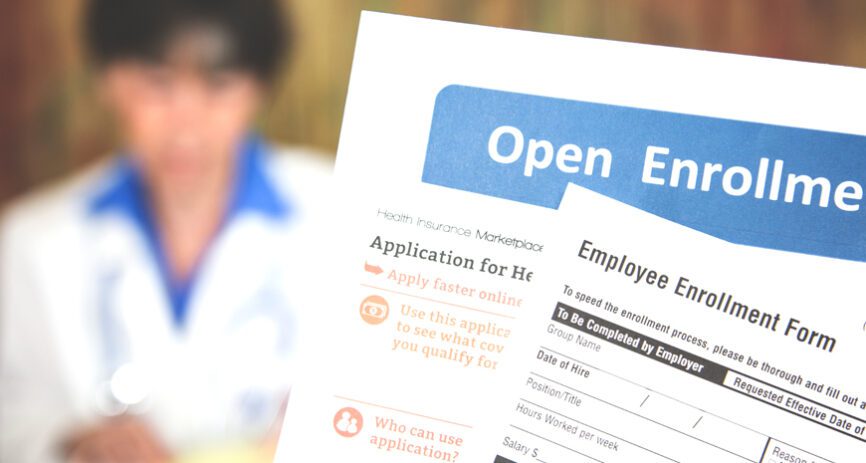
3 ways to help your employees prepare for future health care needs
It’s recently come to light just how financially unprepared Americans are to weather an unexpected health crisis.
According to a recent poll, nearly 1 in 4 Americans say they have skipped medical care because of cost.1 Meanwhile, fewer than half of American adults say they have enough emergency funds to cover three months of expenses.2
The good news is, we all have an opportunity to learn from what’s transpired, and better prepare ourselves for the future. Employers, who have influence over the financial and physical well-being of their employees, should especially take time to reflect. Moving forward, how can employers help their employees be better prepared for the possibility of a health crisis?
In the wake of an economic downturn, when every dollar counts toward your bottom line, it may feel like there are few options for assisting your employees, but that’s far from the truth. Here are three ways employers can help employees be financially prepared for future health care needs and expenses.
1. Raise awareness about the prevalence and financial impact of critical illness
We were all caught off guard by recent events, but employers now have a chance to help their employees be better prepared for what we know may come our way. You don’t need a crystal ball to be familiar with these statistics about common critical illnesses:
THE RISKS
- About 1 in 3 Americans will be diagnosed with cancer in their lifetime.3
- Every 40 seconds, someone in the U.S. suffers a heart attack.5
- An estimated 7 million stroke victims are alive today.5
THE COSTS
- On average, cancer patients spend $703 out of pocket each month on treatments alone.4
- 1 in 5 Americans under 65 who have cardiovascular disease can’t afford to pay their medical bills.6
No one likes to think about the reality that they or someone they know will be affected by critical illness, but when your employees are aware of the facts, they can be better prepared—physically and financially.
Awareness about the prevalence of critical illness may inspire your employees to make healthier choices. Many supplemental insurance policies offer wellness benefits and access to telemedicine. These benefits may help motivate employees to keep up with preventative care and wellness exams. When issues are found and addressed early, the odds of recovery and a healthier future are far greater.
Additionally, when your employees are aware of the financial impact of critical illness, they can begin taking steps to be financially prepared. Purchasing supplemental health insurance (more on that later) and setting aside money in a Health Savings Account are great places to start.
2. Educate employees on their benefits and how to use them
About one-third of employees either know nothing about or don’t fully understand their health coverage. At the same time, 62% of employees also say their employer doesn’t act as a resource for health care-related questions.7
Employers have a responsibility to ensure their employees understand their health care benefits. After all, it isn’t a benefit if an employee doesn’t truly understand it! Better education helps employees appreciate the benefits they have—and know how to utilize them if needed. If you don’t have anyone in-house who’s comfortable educating employees about insurance benefits, find an insurance carrier that offers employee education.
3. Help employees fill the gaps left by core benefits with supplemental insurance
An unexpected health crisis can quickly shock employees with the gaps left by their core benefits. Deductibles, copays and balance billing can add up fast on top of everyday bills and expenses.
Supplemental health insurance can help your employees fill the gaps and be better prepared for future health events. Supplemental insurance pays benefits in addition to core benefits employees may receive. Unlike like core benefits, supplemental insurance pays cash benefits directly to employees, not to doctors or hospitals. This means employees can use the money in any way—whether it’s covering medical bills or household bills. At a time when around 50% of Americans are worried about affording food and expect to miss bill payments,8 cash benefits can mean putting food on the table and keeping the lights on.
With several funding options available, supplemental insurance is an affordable option for employers and employees. Employers have the option to pay all, some or none of their employees’ premiums. No matter what employers choose, they can rest assured that premiums are typically very affordable, costing just dollars a paycheck.
It’s impossible to predict the future, but employers who help their employees be better prepared for the unexpected will reap the benefits for years to come. Higher employee retention, engagement, motivation and productivity are just a few positive outcomes an employer may see.
We can tailor an enrollment for your organization
With in-person, video chat and telephone options, our highly trained agents can tailor an enrollment to meet the unique needs of your organization. We can provide benefits education and enrollment for your employees, whether they’re working onsite or at home. Learn more about our virtual enrollment options here, or fill out this simple form to talk to an agent.
1CNBC, Nearly 1 in 4 Americans are skipping medical care because of the cost, https://www.cnbc.com/2020/03/11/nearly-1-in-4-americans-are-skipping-medical-care-because-of-the-cost.html, March 12, 2020.
2New York Times, Who Has Enough Cash to Get Through the Coronavirus?, https://www.nytimes.com/interactive/2020/04/23/opinion/emergency-savings-coronavirus.html, April 23, 2020.
3American Cancer Society, Cancer Facts & Figures 2020, 2020, p. 2.
4Duke University, Out-of-Pocket Costs, Financial Distress, and Underinsurance in Cancer Care, Retrieved from Guide Star, https://www.guidestar.org/profile/41-1990883, January 24, 2019.
5American Heart Association, Heart Disease and Stroke Statistics–2020 Update A report From the American Heart Association, 2020, p. e486.
6Reuters Health, Almost half of U.S. heart disease patients struggle with medical bills, https://www.reuters.com/article/us-health-heart-finances/almost-half-of-us-heart-disease-patients-struggle-with-medical-bills-idUSKCN1Q02HF, February 11, 2019.
7HRDIVE, One-third of employees don’t understand their health benefits, https://www.hrdive.com/news/one-third-of-employees-dont-understand-their-health-benefits/547224/, February 6, 2019.
8Investopedia, Americans Expect COVID-19 to Greatly Impact Their Finances, https://www.investopedia.com/how-do-americans-expect-covid-19-to-impact-their-finances-4801944, April 6, 2020.
This material provides general information about the described insurance product(s) for educational purposes only. This is not intended as investment advice or to recommend the insurance product(s).
